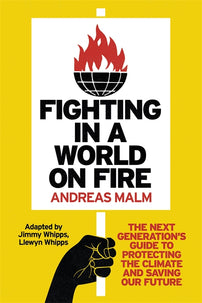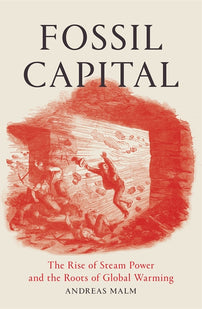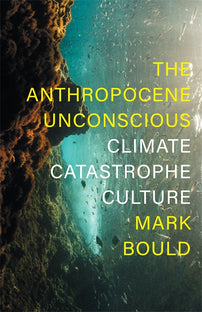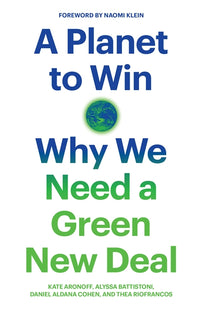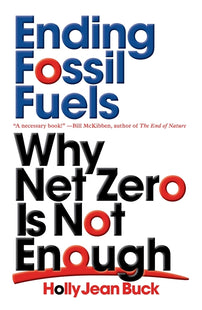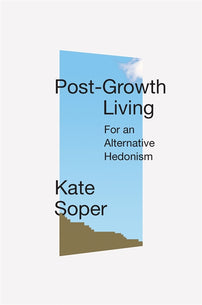Andreas Malm: ‘Total, BP and Shell Will Not Voluntarily Give Up Their Profits. We Must Become Stronger Than Them...’
We are already living in the throes of an intensifying climate crisis that will define our lifetimes. In this in-depth interview, Andreas Malm reflects on the state of the climate movement today and what demands Left climate activists should be putting forward.

This interview was conducted by Jeunes Anticapitalistes (JAC) and originally published by Presse Gauche on 11 September 2022.
Andreas Malm is an ecosocialist activist and author of several books on fossil capital, global warming and the need to change the trajectory initiated by the burning of fossil fuels over the past two centuries of capitalist development. Jeunes Anticapitalistes (the youth wing of Gauche Anticapitaliste, the Belgian section of the Fourth International) met him this summer in France, at the 37th International Youth Meeting organised in solidarity with the Fourth International, to which he was invited to speak.
As activists of the political left in the climate movement, we sometimes feel blocked by what can be seen as a lack of strategic perspectives in this movement. How can we radicalise the climate movement, and why do you think the movement needs strategic debates?
I share this impression, even if it obviously depends on each local situation – the ‘Code Rouge’ action in Belgium, inspired by Ende Gelände, seems promising, but of course you know more about that than I do. In any case, efforts to radicalise the climate movement and make it grow can take different forms depending on the circumstances.
One way is to try to organise mass actions of the Ende Gelände type, and I think that is probably the most useful thing we can do. But of course there are also sometimes opportunities to work within movements like Fridays for Future or Extinction Rebellion, and try to radicalise them, and help them avoid making tactical mistakes and having an apolitical discourse. In some places, I think this strategy can be successful. Of course, there is also the possibility of forming new activist groups which might initially be quite small, but more radical in terms of tactics and analysis, and which might somehow draw others along, or have a ‘radical wing’ effect. It really depends on the state of the movement where you live, and obviously the movement has its ups and downs – a lot of downs recently since the start of the pandemic, but hopefully it will pick up again.
Finally, it is of course extremely important to have our own political organisations, which act as a kind of vehicle for continuity and for accumulating experiences, sharing them and exchanging ideas. Our own organisations can also serve as platforms to take initiatives within movements or together with movements.
For some of us, our first major climate action was in 2009, at COP 15 in Copenhagen. We are now in 2022. What do you think the climate movement has learned since then?
COP 15 in Copenhagen was a turning point. I was very active in the run-up to COP 15 and was part of the group that organised the big demonstration there. But at the end of the conference, the feeling most of us had in the movement was a general sense of failure. Of course, the COP itself was a massive failure, but we also realised that the demonstrations and direct actions hadn’t really had an impact. The movement realised that the focus on the COP summits up to that point was meaningless in reality, and it was largely after this that there was a sharp shift towards opposition to fossil fuel projects, blockade actions, climate camps and things like that.
I think that this strategic shift will have to be reinforced, especially since this year’s COP will be held in Egypt and next year’s COP will be held in Dubai, United Arab Emirates. Both countries are completely hostile to any form of protest – you can’t organise anything on the ground there, so it’s different from the last COP in Glasgow. The climate movement will have to organise things in other places – we can’t take activists to Sharm el-Sheikh in Egypt, the resort where the summit is going to take place. So these next two COPs should be an opportunity for the movement to carry out mass actions in different places around the world at that time, targeting fossil fuel projects.
I was at COP 26 in Glasgow last November. Again, there was a very large demonstration, something like 100,000 people; again, there was an alternative ‘people’s forum’, and I had a sense of déjà vu. It’s something we’ve been doing for a long time and it’s not getting us anywhere. A brilliant comrade from the climate movement in Portugal, João Camargo, expressed the idea, in discussions around Glasgow and in an article he wrote, that we should resolutely turn our backs on the COP process, as it is so useless. As I said, the next two COPs should only be an opportunity to intensify the struggle we are engaged in independently of the COPs.
Continuing on strategic and tactical issues, in your intervention the other day you mentioned the question of the role of workers and the existing labour movement (and these are obviously very different from country to country). You’ve talked a lot about blocking the most destructive fossil fuel infrastructure and companies; how do you see this in relation to workers, not just in these sectors but more broadly, and the labour movement as you know it – whether the Swedish example or those of other countries?
I think I phrased this question a bit unhappily the other day and gave the impression that I was disqualifying the unions too much. That was not really my intention. My concrete experience with trade unions over the last few years has been quite limited, but my horizon is North European and in Sweden the trade unions are completely indifferent to the climate issue, probably more so than in Norway and Denmark. The Swedish trade unions are totally ignorant and disinterested in this subject, and also totally unable to fight for the interests of their members. There are no more strikes in Sweden. This is probably an exception rather than the rule, but the level of class struggle in Sweden is so low that, from my point of view, it is extremely difficult to imagine that, all of a sudden, the Swedish trade unions will rise to the occasion and become an important player in climate policy.
In Germany, where I have a little more concrete experience of climate activism to some extent, the situation is rather more nuanced. On the one hand, with the Fridays for Future movement in 2019, which was stronger and bigger in Germany than anywhere else, there was a moment in autumn 2019 where there was a trade-union component to these strikes and the big public-sector union called on its members to join. On the other hand, there is a very negative experience of the struggle around coal in Germany, which is really a key struggle in the whole European field of climate policy, where the big unions resisted calls for an immediate or even accelerated exit from coal and clung to coal in a very retrograde way.
Out of this experience emerged a position that was articulated by a good friend and comrade, Tadzio Müller, who has been something of a key organiser, strategist and thinker of Ende Gelände. He now almost says that he sees the working class in the ‘northern’ countries as more or less part of the enemy. He thinks that the organised working class is so invested in the existing economy that it can only defend coal and similar things, as it has generally done. Then there is an opposing position which is very clearly stated by another mutual friend, Matt Huber, in his recent book Climate Change as Class War. Building Socialism on a Warming Planet: he argues that the only hope for climate politics is to harness the forces of the organised labour movement and that only by turning to the working class – including taking jobs in industry, in the way that we saw in the 1980s – can we make progress on the climate front. So his idea is that the organised working class is the only conceivable subject of a climate revolution. Here are two positions at opposite ends of the spectrum, and I find myself defending a kind of middle ground between them. I can’t accept the idea that the working class is part of the enemy – not even coal workers – but on the other hand, I don’t really believe in the idea that the organised labour movement will be the main driver of the climate front. I think the main driver of the climate struggle will be and is a climate movement that is not defined around class. I think there are three main ways that someone can become interested in the climate issue: 1) having some personal experience of the weather disasters that are becoming more and more common; 2) having an understanding of the severity of the crisis without having personally experienced it, which is not very difficult to get and does not require a PhD or any kind of university degree; 3) being driven by solidarity with people suffering from climate disasters around the world. I think these are the three main routes to engagement with climate change and none of them necessarily go through the point of production. Rather, there is a kind of funnel that draws people into the climate movement from different points in the landscape of class society.
The movement that emerged in 2019 was largely defined not by class, racialisation or gender, but rather by age. It was primarily a youth phenomenon, with the school strikes in particular, and there’s a logic to that, because the climate crisis has a very distinct temporal aspect: it’s young people who will have to deal with it for the rest of their lives, whereas older people may have benefited from the fossil economy and won’t see as much damage. I think we need to theorise and, to some extent, accept and understand that the issue of age will be significant in future mobilisations against climate change. I think that Matt Huber and others who advocate similar ideas to him are right in that the climate movement needs an alliance with the working class and with segments of the organised labour movement to gather sufficient strength to turn things around. The climate movement needs to ensure that its political orientations are compatible with the interests of the working class and can converge with those interests. But this is different from putting all its eggs in the basket of an industrial turn or a proletarianisation of the climate movement, which I believe would be a strategic dead end. The promise of the Green New Deal and all these initiatives that have emerged in recent years – which unfortunately have not been successful, but that doesn’t mean they are useless or doomed to failure – that the climate transition can go hand in hand with improving workers’ living standards and strengthening the bargaining power and political position of the working class, is something that must be pursued.
In terms of concrete tactical questions about relations with workers in a blockade, the German experience has shown me that it would be a big mistake – a labourist mistake if you like – to prioritise good relations with coal workers over an effective blockade that temporarily damages the interests of those workers, because you shut down their mines for a few days for example. There have been many initiatives to try to establish contact and dialogue with coal workers in Germany, but they have failed, especially in the east of the country, where coal workers tend to turn to the far right AfD to defend their interests, because the AfD wants to continue mining coal forever and denies the existence of the climate crisis. But we must not give up on the idea that the kind of transition we want must ensure that workers in sectors that have to be completely dismantled get equivalent or better jobs, preferably where they live so that they do not have to move. This should be a key element of the transition. But in the long run, workers in the fossil fuel industry cannot be expected to take the initiative to close down this industry; a basic Marxist approach teaches us that their immediate class interest is of course to keep their jobs. So the initiative to close this sector must come from outside and the blockade is a manifestation of this: we come from outside and we want to close this sector because that is necessary. But we don’t want to make these workers our enemies and we don’t want to see them as enemies; we should rather tell them that, unfortunately, they are employed in a sector that has to be closed down, but that we demand that the transition ensures that they get equivalent or better jobs where they live.
I really felt the mistake I made the other day – in sounding like I was disqualifying the unions – when I participated in the workshop on eco-unionism, where I heard several cases – including some I was familiar with – of workers in factories proposing to convert their production. A comrade in the Swedish section of the Fourth International did absolutely heroic work in the auto workers’ union for decades, trying to establish the idea that auto workers can save their jobs by proposing a conversion of their factories to produce things like electrical housing units or wind turbines or whatever else could be used for transition. Unfortunately, he hasn’t made any progress because he’s so isolated and the union bureaucracy is so controlling. I’ve been following his efforts for two decades, and he’s banging his head against the wall of the union bureaucracy to try to get anywhere with this idea. I’ve sort of stopped believing in it because it hasn’t produced any results; but if it did produce results, I’d obviously be extremely enthusiastic and happy to be proved wrong. Nothing would make me happier than to have these kinds of examples of factory workers thinking about the transition and moving it forward.
[book-strip index="1" style="display"]Here is a ray of hope from Belgium. Of course, the unions are not the most environmentally friendly and committed to the climate – they say they are but in reality they are not, as their stance in favour of extending the Liège airport to build a hub for Alibaba’s European operations showed for example – but even so, during the 2019 climate strikes, a new group called Workers for Climate was set up by grassroots and left-wing trade unionists. And the major unions – including their bureaucracies – sent delegations to the protests, and the more progressive wings of the CSC union, which organises retail workers but also the aviation industry, officially supported the striking workers. It’s very symbolic, but it was made public anyway and workers were told that they could strike and be covered by the union.
That’s a completely different world from Sweden, it would never happen in our country – but it’s great!
Another thing: in the Belgian public transport sector there is a real interest in the climate issue. This reminds us of Naomi Klein’s statement that striking railway workers are also people who are fighting for the climate. It may be that certain sectors of the working class and certain trade unions in certain countries may be more easily moved by the climate issue.
I have limited knowledge of Belgium, but it seems to me that you still have a fairly large manufacturing sector and a working class that, from time to time, engages in a serious battle for its interests. So you have a certain reality of class struggle in Belgium, whereas we have nothing in Sweden, absolutely nothing! But where the class struggle is alive, there is of course a potential for the workers themselves to take initiatives or to participate in the climate movement or to have a convergence, a productive interaction. This should be taken into consideration. It is exclusively a question of the level of intensity of the class struggle. At COP 26 for example, there was a garbage workers’ strike in Glasgow, and Greta Thunberg approached the strikers, expressed her support for their strike, and they joined the big demonstration that took place around the COP. This is just one example of how these things can happen. But the problem is that the intensity of working-class struggles is very low – and I think this is the case in general, although Sweden is probably an extreme case – compared to what it was in the 1980s, 1970s, 1960s – let alone the 1920s! If the climate issue had exploded in the 1950s and 1960s, things might have gone completely differently. Instead, it exploded in a moment of stagnation when the working class is historically very weak.
One last example that shows how at some point a potential could arise, at least in Belgium: during the last general strike before the pandemic, in February 2019, the airspace was closed and there were no flights for 24 hours. This shows what unions are still capable of doing and how they could potentially change things for real. But let’s move on: there is a huge energy crisis at the moment, which is also part of the reason why there is very high inflation in several countries, and this is a major issue that is being discussed within the trade-union movement in general and which is also mobilising people to demonstrate. Could we imagine a point of convergence at this level, where we can easily highlight the need to solve the energy crisis for environmental reasons as well as for social reasons?
Absolutely. I think that two demands should be paramount in this situation. Firstly, the demand to switch to renewables as quickly as possible, especially as they are now cheaper than fossil fuels. The cost of a unit of electricity in Europe is lower if it comes from wind or solar energy than if it comes from fossil fuels. Massive public investment should be made to adopt renewable energy as quickly as possible. Secondly, in this situation of rising energy prices, it should be considered fundamentally wrong that private oil and gas companies are swimming in these insane super-profits, and it should be possible to create public outrage about it.
Absolutely. In France, but probably also elsewhere, the parliamentary left grouped in NUPES has proposed a special tax on these profits, and even a limited number of Macron’s deputies, who usually act as loyal soldiers at the behest of his authoritarian neoliberalism, seem inclined to accept this idea. These are immediate demands, but you also put forward transitional demands that should be raised by the climate movement, i.e. demands that directly contradict existing capital accumulation. What are some of these demands?
One of them is to demand that not a single additional facility or infrastructure be built that leads to greatly increased fossil fuel burning. This could apply to an airport, a motorway, a gas terminal or a pipeline, among other things. Another transitional demand – and of course none of this is my invention, it’s something that’s being discussed more and more – is to nationalise the private energy companies, to take control of the oil, gas and coal companies so as to force them to do something different, to stop extracting fossil fuels as quickly as possible and perhaps deploy renewables or even engage in carbon dioxide removal – that is, removing CO2 from the atmosphere in some way. But those are just two aspects, they’re not the only ones, and again, it depends on where you are. In some countries, the oil, gas and coal sectors are already nationalised, and there you would have to formulate things differently.
You mentioned carbon dioxide removal, which is a great opportunity to talk about geoengineering. Like Naomi Klein, you warn a lot about solar geoengineering, and we can understand why when we read or hear about the nightmare this could be. Yet, in the media in general, there is not much written about it – though you say you are afraid it will suddenly appear – and we seem to hear a lot more about carbon dioxide removal by capture-sequestration. Why is that? What is your view on solar geoengineering? And what is your view on carbon capture and sequestration? Given the current state of affairs, is it becoming inevitable as a necessary but insufficient part of the solution, to be deployed alongside massive emission reductions?
This is a vast area that could be discussed for hours. I have a research project on this subject with a Belgian colleague from Lund University, who is also a friend and comrade, Wim Carton. We have obtained funding and next autumn we will be doing research with a whole team of trainee researchers – consisting of students from my master’s programme in human ecology – on various aspects of carbon dioxide removal. We will publish a book with Verso next spring, which will focus on both carbon dioxide removal and solar geoengineering, with the working title Overshoot. Climate Politics When It’s Too Late. I’ve spent the last two months writing about solar geoengineering and trying to understand it. It may sound strange, but I’m trying to use psychoanalysis to understand solar geoengineering, because it has a component of repression of a problem, as in the Freudian model of repression, where you push something out of consciousness so that it doesn’t seem to exist, but under the surface it bubbles up and sooner or later it explodes.
You have to distinguish between carbon dioxide removal and solar geoengineering because they work in different ways. You are quite right that there is not much talk about solar geoengineering. Some vulgar Marxists have argued that the big fossil fuel companies would promote solar geoengineering as a way to pursue business-as-usual. This has not happened: neither ExxonMobil nor any other major fossil fuel company is saying anything about solar geoengineering, no government is advocating it, and no far-right party is pushing it. Although it was expected during the Trump era that he would soon start advocating solar geoengineering, none of this has happened. Conversely, carbon dioxide removal, which works very differently, is something that all the big oil and gas companies say they intend to do as part of their ‘net zero’ propaganda, and you can see far-right parties – someone here mentioned the example of Berlusconi the other day – advocating tree planting and things like that, and there are also a lot of startups and capitalist companies that see the removal of carbon dioxide – especially capturing it directly from the atmosphere – as a new business area in which to produce goods and make a profit. So there’s this sort of burgeoning field of commercial opportunity in carbon dioxide removal that doesn’t exist in solar geoengineering because it doesn’t produce new commodities that can be sold.
There are many differences between the two. Another is that the removal of carbon dioxide, as you suggested, is going to be necessary because the concentration of CO2 in the atmosphere is already too high. You have to take the CO2 out of the atmosphere, put it back underground, stored in underground tunnels where it can’t be taken out – where it was before it was extracted as fossil fuel and burned. The only way to do this on a large scale seems to be through advanced technology. Planting trees will not be enough, as it is impossible to return carbon to the passive part of the carbon cycle, under the soil, simply by planting trees. Planting trees affects the active carbon cycle, but for carbon to be sequestered back into the soil, where it is geologically excluded from the active cycle, something else is needed. Technology such as direct atmospheric capture is promising in this respect, as it allows CO2 to be captured and mineralised, i.e. transformed into a rock that can be stored underground.
There are facilities in Iceland today that do this and it is essentially a proven technology. However, our analysis – Wim and I wrote an article about this in Historical Materialism -- is that the problem is that this technology is being captured by private interests who don’t see any profit potential in taking the carbon and burying it underground, because it essentially means putting a resource out of the economic cycle. What they can do instead to make a profit is capture the CO2 and turn it into a product such as synthetic jet fuel, or use it in fertiliser, or capture the CO2 and sell it as carbon dioxide to Coca-Cola – that’s what Climeworks, one of the big direct atmospheric capture companies, does. If you make a commodity out of it, there may be an economic benefit, but that’s just recycling the carbon, because it’s not actually buried in the ground. So if you want to put it underground, you have to free that technology from the profit constraint – that’s our point.
Solar geoengineering, on the other hand, is a different matter. It carries many risks of disrupting the climate system. The biggest risk, of course, is the so-called ‘termination shock’: if you deploy solar geoengineering, you’ll have a sunscreen but you’ll still be accumulating CO2 in the atmosphere; all that CO2 in the atmosphere is just waiting to exert its radiative forcing – its impact on the climate. In other words, if the sunscreen is removed for any reason, then – boom! – this accumulated CO2 creates a huge temperature increase. (Imagine you put a lid on boiling water, it keeps boiling, gets hotter and hotter, then you take the lid off and all the boiling water comes out of the pot at once.) This could lead to a disastrous and unimaginable temperature spike. And solar geoengineering has all sorts of other dangers. So solar geoengineering is not something we should be defending on the left, and here I differ from someone like Kim Stanley Robinson for example. He is a novelist who has written an excellent novel called The Ministry for the Future, probably the best work of climate fiction to date. However, Robinson argues for solar geoengineering – which features prominently in the book – from a left-wing perspective. A colleague of mine, Holly Jean Buck, does the same thing in the US; she has written about solar geoengineering, and she believes that the left should see it as a potentially useful technology.
I don’t think it’s useful, I don’t think we should ever advocate it, but we should be prepared for it because it’s very likely to start soon. That likelihood comes not from aggressive sponsorship – so far, as we’ve said, it’s hardly ever talked about – but from a logic to it which is that there’s only one known technology that has the potential to immediately reduce temperatures on Earth. Removing carbon dioxide would take decades to have an effect. Similarly, if we stopped emissions immediately, we would not see a drop in temperatures – we would first see a slower increase, and then perhaps it would level off. If at some point it is felt that we are in a total emergency situation and something needs to be done to reduce temperatures, the only thing that can be done to achieve this is to launch sulphate clouds into the atmosphere. This is the only known technological option to do this. Every summer, with each new season of disasters, my feeling is OK, when will the order be given to apply solar geoengineering? When are things going to break down, when is the system going to break down and when is there going to be a real sense of urgency that – like a pandemic – something has to be done, and when is there going to be that moment when governments start looking around and saying, ‘What can we do? The American West is on fire’, or becoming a desert, or the whole of Europe is burning or something. And then there is only one thing that can be done.
If you get into a situation like that and the planes take off to inject sulphate particles, I’m not saying we should shoot down those planes or sabotage them or anything. But we should think about what a left-wing strategy would be in such a moment, because this situation seems more and more likely for strictly logical structural reasons. There are more and more signs that a part of the bourgeois intelligentsia is moving in this direction. For example, there is a think tank called the Paris Peace Forum, which aspires to be the geopolitical equivalent of the World Economic Forum; this group has set up a commission on overshoot, chaired by Pascal Lamy who used to be president of the WTO, and who announced a few months ago that we should look at geoengineering, that there is no other way... Do you know this guy?
[book-strip index="2" style="display"]Yes, he is or was a neoliberal in the French Parti Socialiste; he was European Commissioner for Trade and then he went to the WTO...
That’s it. Another sign is that about a year ago, the US National Academy of Sciences issued a long report calling for a national geoengineering research program, and I think it’s much more likely that Biden and the Democrats will take the lead on this than Trump and the Republicans. So it’s something to watch closely and be prepared for.
This brings us to the question of the state. A lot of people and activists on the left feel that the climate, and more generally the ecological disaster, is a reason why we need to tackle the question of the state and not just focus on things like local alternatives. This is such a global phenomenon, so destructive, and will require so many investments, decisions, etc., that something like a state is needed in order to act. But then, of course, there is the question of what kind of state we are thinking of. You talk a bit about this in your book on the pandemic; it would be interesting to explore this.
Basically, I think the observation is correct: this crisis, however it is managed, will be managed by the state. Solar geoengineering would be an incredibly extreme intervention in the whole planetary system and it would be carried out by particular states. Large-scale carbon dioxide removal obviously requires massive state involvement. Reducing emissions also requires state intervention, because the reductions will have to be so large, rapid and comprehensive that no agent other than the state will be able to achieve them. It should be emphasised here that all scientists who advocate carbon dioxide removal and/or solar geoengineering are well aware that none of this will work without massive emission reductions. Those who advocate solar geoengineering never say we can do it instead of emission reductions, they say we must do both at the same time. The question is whether it is really likely that both will be implemented at the same time. They think so, but I think it’s an optimistic illusion. The reason I say all this is that there is no way out of the climate crisis without massive emission cuts, and these have to be extraordinarily rapid, deep and radical.
Whichever way states go, I think they will be subject to changes in their character. If a state implements solar geoengineering, it will become extremely powerful because it will rule the climate of the planet, which will bring with it all sorts of dangers of authoritarianism and extremely centralised control of climate conditions in other parts of the world. There are all kinds of scenarios: solar geoengineering could cause a monsoon problem in India or have some other very bad side effect somewhere in the ‘global south’. But the geoengineering state – it could be the United States, for example – is likely to continue with it, and thus exercise incredibly centralised power over humanity.
A state that undertakes massive emission reductions could also change its character. It could become authoritarian, as it would have to forcefully direct the economy and society to achieve these rapid emission reductions. But there could also be a deepening of the democratic substance of that state: for example, if you nationalise private fossil fuel companies, you essentially extend democracy into the sphere of energy production. In other words, you put it under public control and you put a sector of the economy in the hands of democratic political control, which in a way goes against the limits of bourgeois democracy, which considers democracy to be a strictly political sphere and the economy to be a self-governing sphere that should not be subject to interference. If you take over the energy sector and place it in the political sphere, you are in a way extending democracy to the economy. I think that a real transition requires this kind of deepening of democracy and that it can potentially take the form of a rupture, a revolutionary change in the sense that, if you want to accomplish that, you’ll probably have to defeat a very important part of the class enemy. Because it’s not like Total or BP or Shell are going to voluntarily give up and say ‘OK, take our companies and we’ll never make any more profits, we’ll just give up our industry and die voluntarily’. That’s not the way it usually works in history. If you want to do that, you have to become stronger than them, which is no mean feat, because they are much stronger than we are today. So we have to become stronger than them, and if we were to defeat them, it would not necessarily mean a total social revolution, but a change in property relations that could perhaps trigger a process beyond the present order of things.
In addition to the question of the state and local initiatives, there is the question of the role of individuals. There is a narrative frequently put forward by corporations and governments that it is primarily the responsibility of individuals to solve the ecological disaster, but there is also sometimes pressure in activist circles to live and act differently, and perhaps even sometimes to supposedly solve this issue through small changes at the individual or community level. What is your impression of this?
It’s a question that comes up all the time and that we struggle with all the time. In general, I think it’s important to stress that individual lifestyle changes will never be the solution and that what you can do as an individual has an extremely limited effect. To believe that I, as a consumer, can change things by making different purchases is to capitulate to a bourgeois discourse on society that is fundamentally flawed. First of all, as a consumer, one has extremely limited power to change. And the way that we act as consumers is fundamentally unequal in the sense that it is the richest consumer who has the most influence: we are not going to base our political orientation on our personal wealth. A working-class consumer may not be able – or have the time – to buy the more expensive and environmentally sustainable alternative. Bill McKibben was invited to my university one day and was asked ‘what is the most important thing I can do as an individual?’, to which he replied ‘stop being an individual, join with others and do things together, it’s the only way to change things’, and this is true.
On the other hand, it would be the opposite mistake to think that what you do as an individual doesn’t matter. This is not a question of impact but of credibility: if we advocate ecological war communism or a total transformation of society, it would be hypocritical of me or anyone else advocating this not to make any changes in their own lifestyle and allow themselves to fly at the drop of a hat or eat as much meat as they please. Saying that what I do as an individual doesn’t matter and that I can do what I want, but at the same time I am for a total change of society, is not a way to make oneself credible. You have to practise at least a little bit what you preach.
But there is this sentence of Adorno’s that you may have heard before: ‘There is no good life in the bad one.’ To me, that means that if you’re stuck inside a system that is fundamentally rotten, it’s extremely difficult to purify yourself and live in a completely sustainable way. It’s virtually impossible, unless you drop everything and live alone as a hunter-gatherer in the forest, to escape the filth of industrial capitalist civilisation. We can’t strive for total purity, it’s impossible because we want to be part of society and we want to change it – we don’t want to remain isolated outside it. And as long as you are inside society, which is a precondition for changing it, you have to make concessions to it. This is what has always happened in our struggles: workers are in a relationship of dependency with their employer and receive wages from their employer; they struggle against their employer but they are still in a relationship of dependency and cannot escape it so easily. In the same way, we are locked into a system that makes us consumers of fossil fuels and we cannot completely escape from it.
What this means for each of us is that we have to negotiate this in our own lives and make decisions to determine a balance, which is the right thing to do. Here, the thing that comes up most often is flying, because it’s the worst thing you can do as a private consumer in terms of emissions, and it’s also an act that is sometimes hard to resist because, for example, if you want to go to North America for whatever reason – you might have a political reason for going – there’s no other option than to fly. Last December, I had to go to Egypt because it is a country with which I have ties. And for the first time in the history of mankind, it is not possible to get on a boat on the north coast of the Mediterranean to go to the south – there are no boats to Egypt! It’s strange because that’s how people have travelled for millennia, for example between Egypt and Italy, but it’s no longer possible because a whole capitalist society has imposed aviation as the only mode of transport available. What do I do then? Do I stay at home and say I can’t go to Egypt because there are only flights? No, that’s not what I did, I took a flight to go there. However, when I discussed how I would get to this camp [in central France], I was first told that speakers were asked to take the cheapest means of transport to come. In my case, that would have meant flying, but that wouldn’t have seemed right – I try to avoid flying in Europe. Then I was told that a Danish delegation bus was leaving from Copenhagen, so of course I took the Danish bus, because it was the best thing to do. But I don’t think there is a general rule on how to deal with these issues in one’s life, except to try to avoid excessive emissions and to avoid emission-intensive choices where possible. Of course, this has to be balanced against other factors – the political projects one is involved in, family affiliations, etc. – which may affect the way one lives. In any case, we have to give up the idea that our individual actions are what will change society and the idea that one can become pure and free of sin and guilt in this society.
In your interview with Stathis Kouvelakis for Hors-Série, you add another argument about the fact that consumers have no control over the way things are produced, over global production chains, etc.
Yes, we can take the example of the steel sector which is crucial in terms of emissions: there is no way for a consumer of finished products to have a real impact on the choices in the steel sector, because steel is an input in other products, and as a consumer, when you buy a car for example, you don’t come into direct contact with the steel industry, you can’t boycott it.
A word about Sweden, where you come from. What is the state of the climate/ecological movement, apart from Greta Thunberg, and what are the challenges for the left in this country?
Actually, Greta is kind of an anomaly because the climate movement in Sweden is extremely weak. Sweden is generally a graveyard for social movements and Greta became famous in Sweden because she became famous in Europe first. She was sort of discovered by the Swedish media all of a sudden –‘this Swedish girl is becoming very famous in Europe, we have to cover her here too’. But school climate strikes as a movement have always been weaker in Sweden than in Denmark, let alone Germany or even Belgium. We have never reached the stage that you have. At one point in late 2019 there were some quite large protests in Stockholm, but it was still far from the influence and scale seen in other countries. There are initiatives here and there. By the time this interview is published, there will have been a small-scale Ende Gelände-type action at the end of August against a cement company in Gotland, the island in the Baltic Sea. On the other hand, there was a huge flop at the beginning of June: an attempt by activists in Stockholm – I was part of it at the beginning – to run a campaign called ‘Pull the Plug’ at a summit that took place at the beginning of June and which received no media attention. The summit was called ‘Stockholm+50’ because in 1972 a major UNEP summit was held there, which was a kind of milestone in the development of international environmental policy. So the idea was that fifty years later, the Swedish government and the UN would organise a summit to celebrate the fiftieth anniversary. We wanted to do some actions during the summit, but the only thing that was finally organised was a march past the homes of some CEOs of Swedish oil and gas companies and banks. The idea was to go in front of their homes, light smoke bombs, shout slogans, etc. – a great idea, but there were only a hundred people. A hundred people after six months’ trying to mobilise: a total failure. It was even embarrassing.
And then there’s the question of the left. There is the Left Party, which is the former communist party, and our section of the Fourth International, which dissolved as a party. We called ourselves the Socialist Party [nothing in common with the Socialist Parties in Belgium or France] and now we call ourselves Socialist Politics – particularly so as to be able to work within the Left Party. The Left Party’s president for the last years has been Mehrnoosh Dadgostar, who goes by the name of Nooshi. She has abandoned the climate politics of her predecessor Jonas Sjöstedt, a car worker who worked at the Volvo factory in Umeå, in the north of Sweden, and who was very close to some of our comrades in the Fourth International, because the biggest metalworkers’ union in northern Sweden is run by members of its Swedish section. He sort of started the process of inviting us into the Left Party in the years when Podemos and Syriza were interesting left forces. He wanted to expand the Left Party, to make it more like that kind of party, and suggested that we work together. He was personally involved in climate policy and made it part of the political profile of the Left Party. But Nooshi’s strategic project is to attract working-class voters from the Sweden Democrats – the far right – back to the Left Party. In fact, to simplify things a bit, she has the idea that the working class is essentially the white working class in the old industrial cities or post-industrial cities in rural areas, and that to win back these voters from the Sweden Democrats, you have to tone down climate policy and anti-racism. Our current – Socialist Politics – and various others within the Left Party are of course unhappy with this shift, she has taken a controversial line. She presents herself as an old-fashioned social democrat, very pro-industry – she likes to go to construction sites, put on a hard hat and have her picture taken posing as a worker, that kind of working-class attitude...
It’s similar to the short-lived experience of Sahra Wagenknecht’s ‘Aufstehen’ organisation in Germany.
Yes, it’s the same kind of orientation. This tension is present constantly nowadays: should we be against ‘identity politics’ and focus on more immediately class-related issues, or should we have a broader understanding of class and the revolutionary subject. And unfortunately, Nooshi has a very clear tendency towards the former position in this debate.
One last word on Code Red, the action we already talked about at the beginning of the interview. Together with the Gauche Anticapitaliste, we are members of a broad coalition – with organisations like Greenpeace for example – that is planning a major civil disobedience action in early October. The aim is to block a large Total facility...
Oh, great!
We think so too! Total took over the main Belgian oil company, Petrofina, twenty years ago, by the way. We’re aiming to mobilise over 1,000 people for this action. It’s really ambitious – we would like to do something like Ende Gelände, which is very inspiring. We are working hard to make it a success...
Do you already have dates for this action? Where will it take place? Is there a website?
Yes, it will take place on the weekend of 8-9 October. There is a website which is https://code-rouge.be/. The location has not yet been disclosed – we will disclose it at the last moment so that this very confrontational action has a better chance of success.
Of course, that makes sense. Great! Unfortunately, I can’t make it on those dates, but if I could, I would definitely join you!
Translated by David Fernbach

